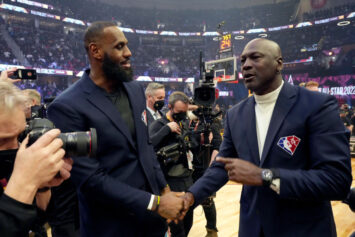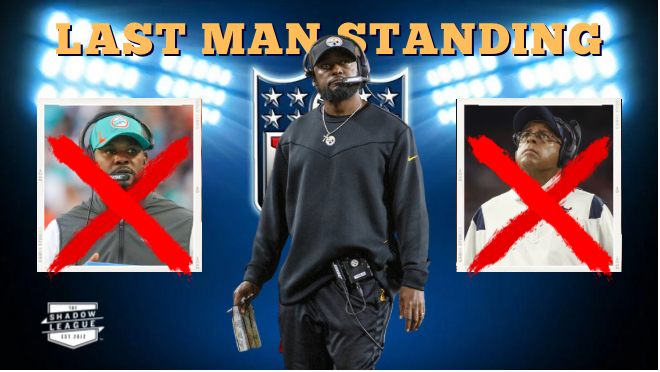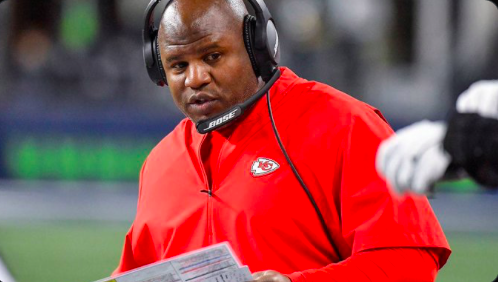New York Comic Con is just too damn big to be covered in its entirety by one dude unless, of course, youre gifted with superpowers. With nearly 1 million square feet under its translucent ceilings, filtering the sun like heavens rays, the Jacob Javits Convention Center in Manhattan is a mammoth structure.
With that in mind, my game plan was to canvas artist alley and shed light on black, brown and women artists.
Many have been working diligently at the major comic book imprints for decades on some very popular titles. Yet, most comic book fans wouldnt know who they are or what they look like if they bumped into them on a busy street. Other Black geniuses have been creating high-quality independent product for twice that long, with works that speak to the truths of specific narratives and populations.
New York Comic Con on Twitter
You are our family. This is for you. #NYCC https://t.co/vck8sS79MT
In the coming weeks, The Shadow League will be releasing exclusive and candid interviews conducted live from New York Comic Con from such creative minds as Afua Richardson, Sanford Greene, Regine Sawyer and Khary Randolph, among many others. Through all the congested corridors, exclusive television panels, film debuts and cosplay shenanigans, true diversity and inclusion was still very much a concern among many.
In the past, those trumpeting for inclusion and intersectionality within and surrounding comic books and science fiction insisted upon greater diversity amid panel choices. To that end, New York Comic Con has included a steadily increasing number of diversity panels meant to educate attendees; from historic firsts of inclusion, orchestrated institutional exclusion, to the proliferation of racial stereotypes in the past, these panels brought our story to the fore like at no other point in New York Comic Con history.
Diversity panels like; The Representation Book Shelf: Building A More Diverse Comics Classroom, Women In Comics: Celebrating Over 100 Years, Queer Pop Culture, Anime for Feminists, The Wonder Women Behind LGBTQ Characters in Comics, Super Asian America, and Building the Resistance: Activism in Fandom, and others, were indicative of NYCC acknowledging the need for greater diversity surrounding this genre. However, many Black attendees and journalists confided in me their confusion and frustration regarding Black panels with almost identical themes.
NERDOPHILES @ NYCC on Twitter
The last few hours of #NYCC are upon us…not that you can tell. @NY_Comic_Con
Full Spectrum: Why Color in Comics Matters, We Need Diverse Books Presents: Spring Awakening Diversity in Coming of Age Comics & Graphic Novels, Black Superheroes; Luke Cage to Black Lives Matter, Geeks of Color, 5th Edition: Getting in the Door, Heroes of Diversity, Black Heroes Matter, Women of Color Break Out the Books: Professionals in the Biz, and Afropunks & Blerds: The Black Nerd Renaissance Part 2, were but some of the panels dealing with comic book related issues as they pertained to people of African descent.
According to some, panels like Heroes of Diversity: Black Heroes Matter and Luke Cage to Black Lives Matter, were virtually interchangeable from an informational and participant standpoint. Meanwhile, there was only one panel dealing with Latino interests and one on Asian interests,
Blogger and journalist Val Complex (Black Girl Nerds) asked the New York Comic Con braintrust about the criteria for panel approval in light of what appeared to be a proliferation of seemingly redundant panels.
Why is this important? Because black panels, almost swapping panelists and ideas ad nauseum, it plays up to the false idea of black folks as an idealistic monolith. Panels act as the central nervous system of blerdom in many ways. Attendees take the ideas of the black comic book literati (artists, writers and academics) as gospel. While their words and ideas are to be celebrated, there are countless layers within diversity.
New York Comic Con on Twitter
When the stars align just right https://t.co/HM2Lb9fdjE
As is often the case when legitimate concerns are raised in such settings, Val Complex got a run-around answer of how the popularity of a pop culture subject matter merits whether or not a panel is approved. Later, I spoke with journalist Karama Horne (theblerdgurl), she took a viewpoint similar to Val’s regarding the black panels.
Meanwhile, Bleeding Cool and Newsarana recounted separate incidents revealing a swell of racist, homophobic slurs uttered at an exclusive breakfast panel for comic book retailers attended by Marvel writers Charles Soute, Nick Lowe, Christina Hanigan and Marvel editor Tom Brevoort.
The retailers seemed upset about Marvels increasingly diverse titles and subjects. Homo, freaking females, and black were heard, as well as complaints about Thor becoming a woman. Marvel released a video to Twitter on diversity and inclusion recorded with Stan Lee soon after news of the incident began to spread. Though obviously meant as a direct response, the video was actually recorded earlier.
Marvel Entertainment on Twitter
A message from @therealstanlee, one of Marvel’s founding fathers. https://t.co/G1tjPtrmcc
As diversity spreads throughout an industry in which the voices and influence of marginalized groups had been historically downplayed, it is both natural and expected that those gatekeepers of mainstream sensibilities bristle with discomfort. Additionally, New York Comic Con 2017 has also revealed the need for greater sensitivity and vision within black panels as well.



